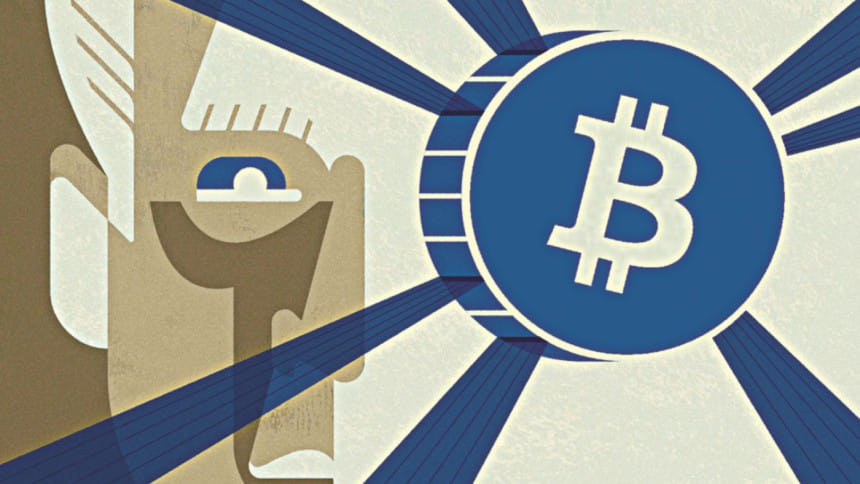Cryptocurrency: Should you jump on the bandwagon?

WHAT IS THIS, THING?
Cryptocurrency was first introduced to the masses as a form of digital money; emphasising on the point that the future is cash-free. By definition, cryptocurrencies are "a digital currency in which encryption techniques are used to regulate the generation of currency and verify the transfer of funds, all operating independently of a central bank." Simply put, think of it like this; valuable minerals are mined from the earth and traded in exchange for money, cryptocurrencies follow a similar ideology - where cryptocurrency is created or “mined” using processing power from computers.There is a significant difference though: mining gold involves a possibly shady middleman trying to extort as much as possible from both the ends.So wouldn't it be much simpler if you could directly mine money instead of the gold, all by yourself? Well, cryptocurrenciesallow you to do exactly that.
HOW DOES IT WORK?
“Mining” in this case is basically the computer taking part in a sharing-pool where the processing power is used to perform very complex mathematical calculations, where you are rewarded cryptocurrencies like Bitcoin units in return. These currencies can be stored in digital wallets – so in theory, not very different than a PayPal or the local bKash account you keep money in, but unlike cryptocurrencies, you cannot generate more money in these accounts without using real money, unfortunately. To bring value to the entire system, there is a predetermined number of a certain type of cryptocurrency that can ever be mined. For instance, a maximum of 21 million Bitcoins can ever be created. It's more like the olden days of trade, using minerals like gold to use as currency rather than printing money.
It is organised through a peer-to-peer network known as a blockchain. This ingenious but simple invention at its core is basically an online ledger that keeps an incorruptible record of all transactions made with bitcoins.
When a transaction is completed, it is logged in a block that becomes a part of a permanent database of these several back-and-forths.
CAN I TRY THIS MINING THING AT HOME?
We now come to the important question, should you try mining bitcoins at home? In a statement by the Central Bank released in 2014, the use of bitcoin was banned in the country under a law that regulates trading in foreign currency without clearance from the central bank. The reason stated a lack of a central payment system that could financially cause harm to people. Anyone convicted can earn a sentence of up to 12 years in jail and other fines. So the answer is, no.

SO SHOULD I BURRY ALL MY CRYPTO-MILLIONAIRE DREAMS?
The currency has been quite volatile from its birth. But according to early 2018 forecasts by industry professionals, a single bitcoin might reach prices upwards of $50k by the end of the year. Investors who have purchased bitcoins so far have done surprisingly well till now. But the entire thing might go up in flames tomorrow for all we know. Compared to investing in a disciplined, rudimentary stock market, it is hard to define an inherent magnitude to cryptocurrency. Hence, it would be wise to take any tips regarding cryptocurrecies investments with a grain of salt, as even though the market has seen incredible returns throughout 2017, one does not need superhuman foresight to figure that prices will definitely not keep going up forever.
MILLIONAIRE(!) IN THE MAKING?
Initially, I considered mining Bitcoins. But some research and calculations led me to understand that it is illegal to do so and the steep electricity bills will not be worth it. The only other way was to trade instead of mine; i.e. buy it through cryptocurrency exchange websites like Binance or Coinbase, which are also illegal in Bangladesh. Interestingly due to the govt. decree none of these websites accept transactions from Bangladesh. So instead of investing, I wanted to have a closer look at the pattern of trading. I had to turn to my friend living in the United States who was interested in investing on intangible currencies for me to understand how this trading works. He invested a tiny amount of money in Bitcoin, Ethereum, Litecoin through Coinbase - the biggest cryptocurrency exchange currently on the internet.
After he invested, I slowly started to understand more about cryptocurrencies and the blockchain technology in general. He bought the coins in December 2017 and now about two months later, while the returns on his Ethereum investment have doubled; he lost money on both Bitcoin and Litecoin. He further invested on lesser known cryptocurrencies like Ripple and Cardano. It's a risky investment but in case you still want to do, convince yourself that the amount invested was never yours, and whatever returns you might get is absolutely a bonus.
Md Sadman Islam is a photographer for Shift, the automotive publication of The Daily Star. Md Nahiyan Naser is an ambitious engineering student with a forehead the size of the Atlantic.

 For all latest news, follow The Daily Star's Google News channel.
For all latest news, follow The Daily Star's Google News channel. 








Comments